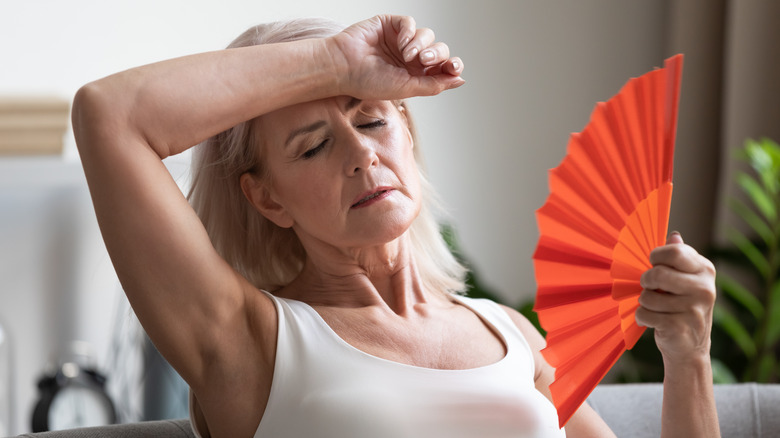Why Menopause Can Make Intimacy More Difficult
No woman enjoys the thought of menopause. The uncomfortable hot flashes, night sweats, and pesky weight fluctuations are just a handful of signs that menopause has arrived. It is one of the inevitable moments in a woman's life, marked by sudden physical changes that some find incredibly challenging. There is another side effect once this new chapter begins that many women don't always consider, but one that poses a great risk to intimacy and romance.
Did you know menopause can absolutely kill your sex life? According to Hopkins Medicine, over a third of women who are close to menopause or who are postmenopausal have expressed a lack of sexual interest, and say that when they do have sex, they have trouble orgasming. Due to the lack of sexual desire along with the natural changes in the body, intimacy can be much less enjoyable than it once was for many women as they approach those menopausal years, typically between 45 and 55. While this abrupt plunge in your sex life may be frightening, it's important to know what these changes are and how to prepare yourself for menopause.
Menopause leads to feminine dryness
During menopause, estrogen levels take a dip. This is the process that happens once your body doesn't have a menstrual cycle for 12 months. Unfortunately, this has a lasting impact on your feminine health, particularly your ability to produce vaginal secretions. Commonly known as vaginal atrophy, this occurs when the tissues within the vagina become thin and void of moisture. This is a common occurrence during menopause, a direct result of estrogen declining.
This condition can make sexual intercourse extremely painful and overall unpleasant. Penetration during vaginal atrophy can even lead to bleeding following sex. Urinary tract infections and yeast infections are also common in women experiencing this. Thankfully, there are several ways to combat this. Doctors can prescribe estrogen in low doses to replenish the body's supply. This can come in cream or tablet form that is inserted into the vagina via an applicator. One popular drug on the market is estradiol. This insert should be applied once a day for two weeks, after which, users will only insert the medication twice a week. For an over-the-counter solution, a water based, fragrance lubricant can offer temporary moisture.
Other changes may snooze your groove, but there are things you can do
Another factor that could be putting a damper on your intimacy during menopause is the frequent urge to pee. This is caused by the pelvic muscles weakening, another tale-tale sign of the estrogen levels dropping. Since the pelvic floor muscles support the bowel, bladder, uterus, and vagina, once they weaken, it places pressure on the bladder, which in turn leads to embarrassing leaks. This can make intercourse a bit awkward.
Weakened pelvic floor muscles combined with penetration can lead to urination during an orgasm, a phenomenon known as urge incontinence. Estrogen restoration medicines such as estradiol or systemic hormone treatment, which is usually taken orally, can help eliminate the urge to urinate frequently. Non-hormonal treatments such as caffeine and alcohol reduction, Kegel exercises, and losing weight have also proven effective to reduce urination, especially when attempting intimacy during menopause.
While an altered sex life is a menopause symptom no one prepared you for, this can actually be a time of positivity. Most women will no longer have to worry about periods and pregnancies. Still, going through this process can be difficult. It can take a toll on you both physically and mentally, forcing women to face the obvious body changes and realization of inevitable aging. Just because you're going through the "big change" doesn't mean your intimacy has to suffer. Find things that work best for your body and incorporate them into your pre-sex routine.


